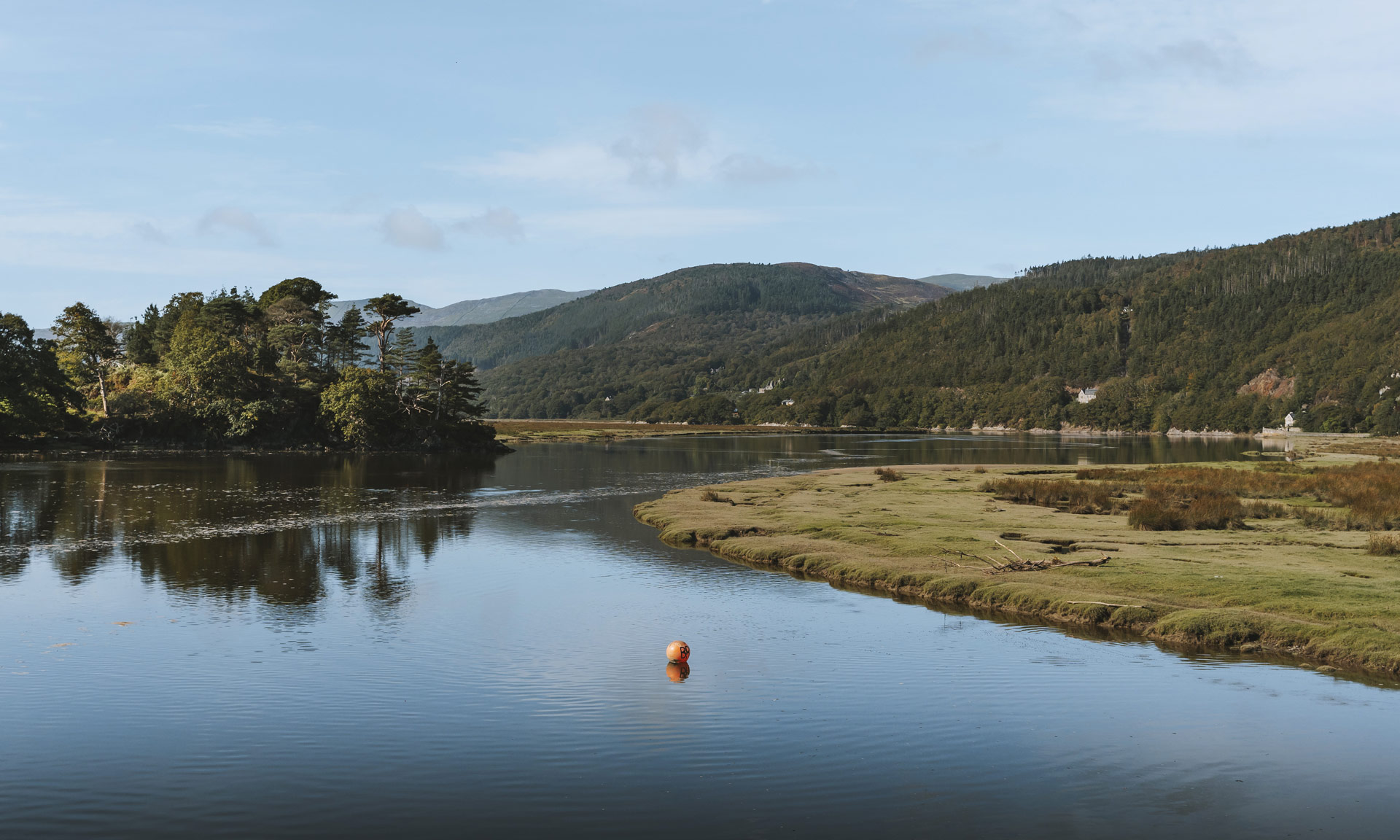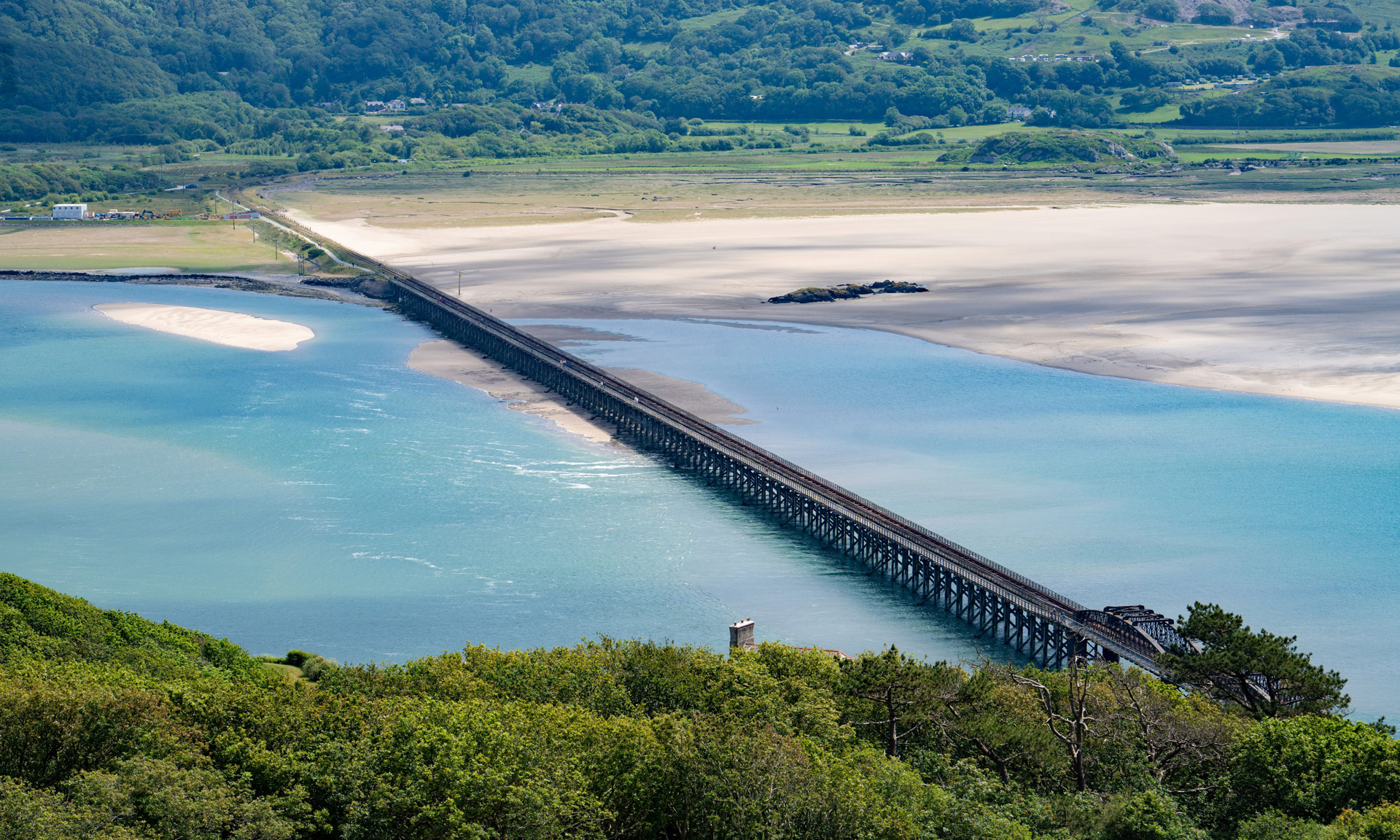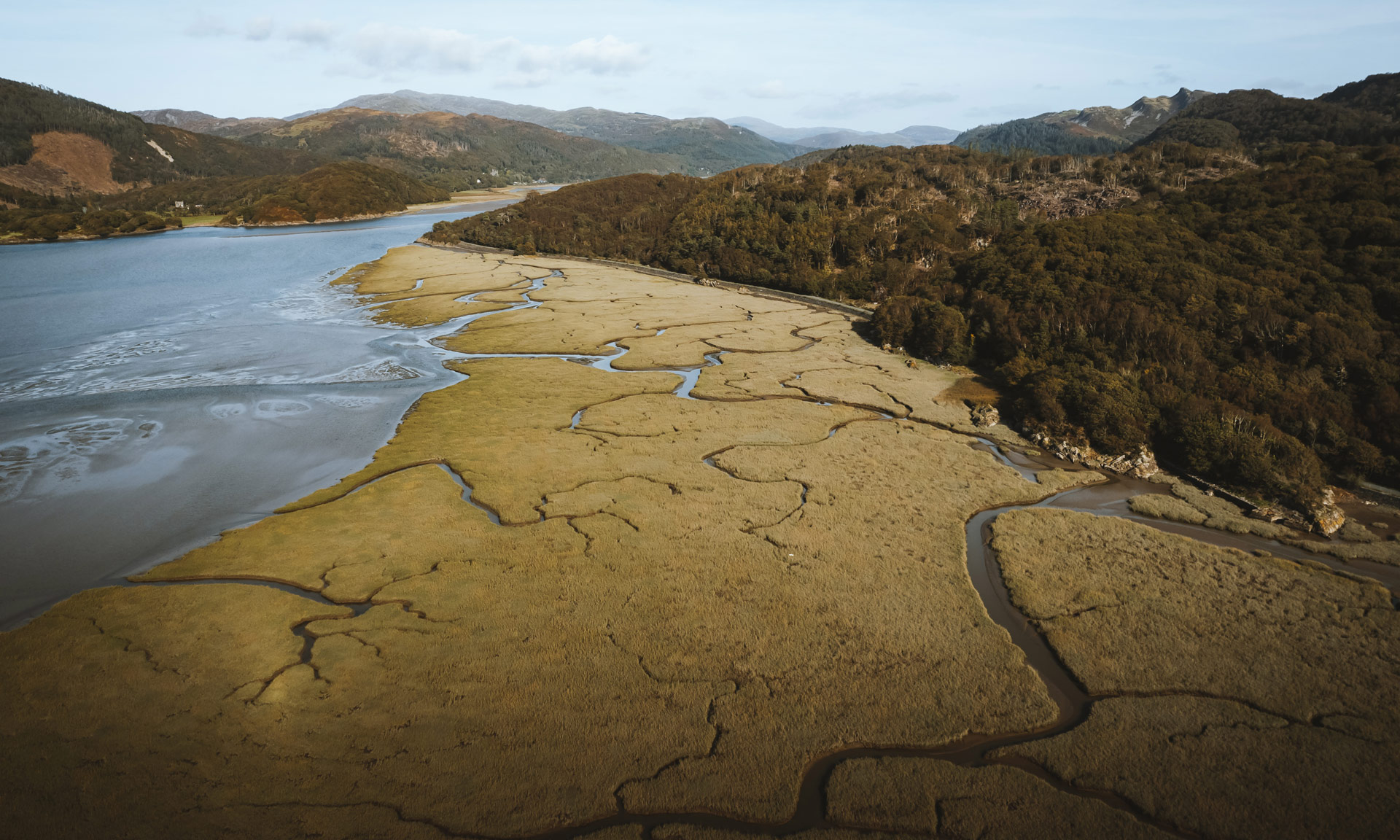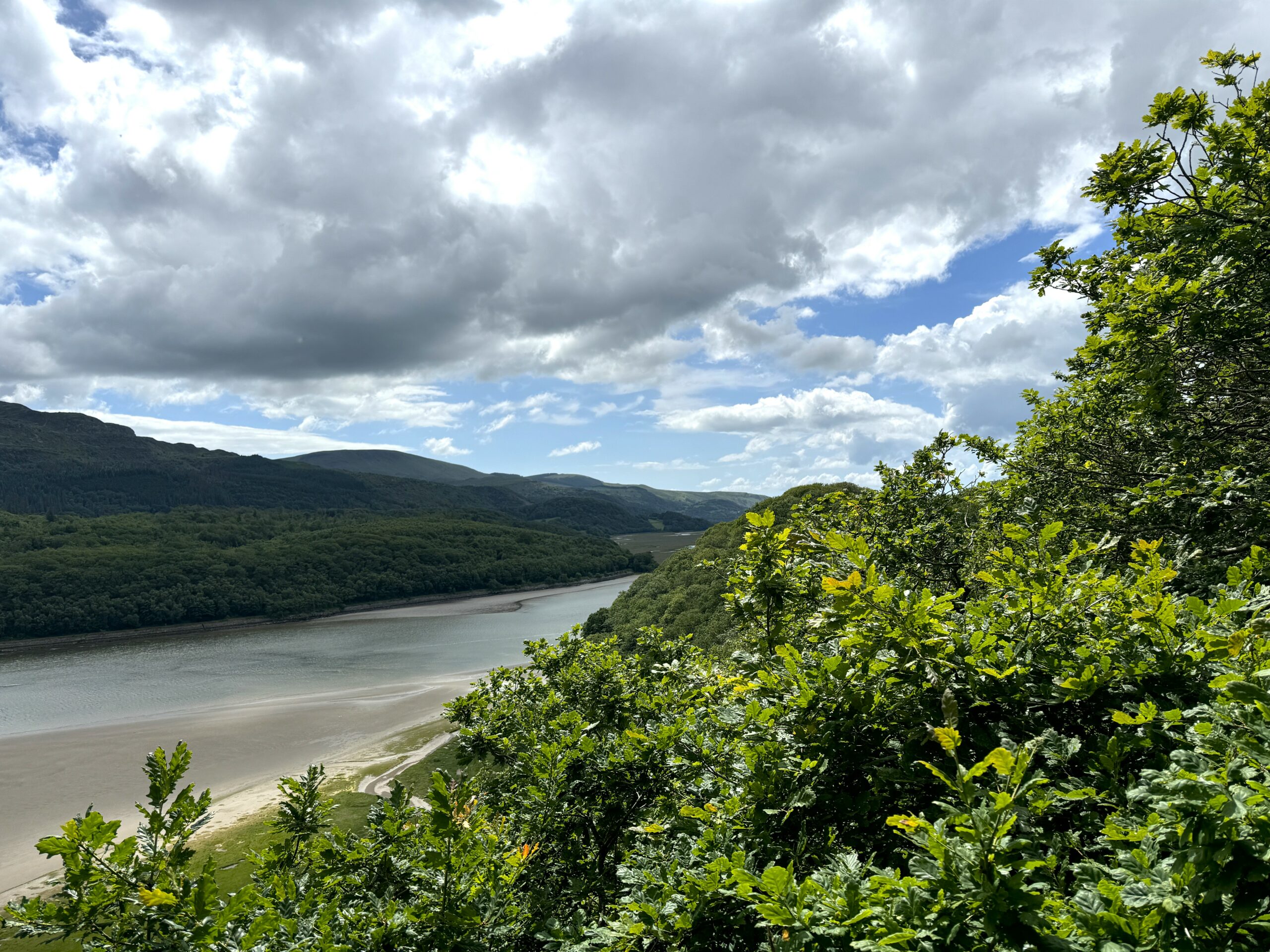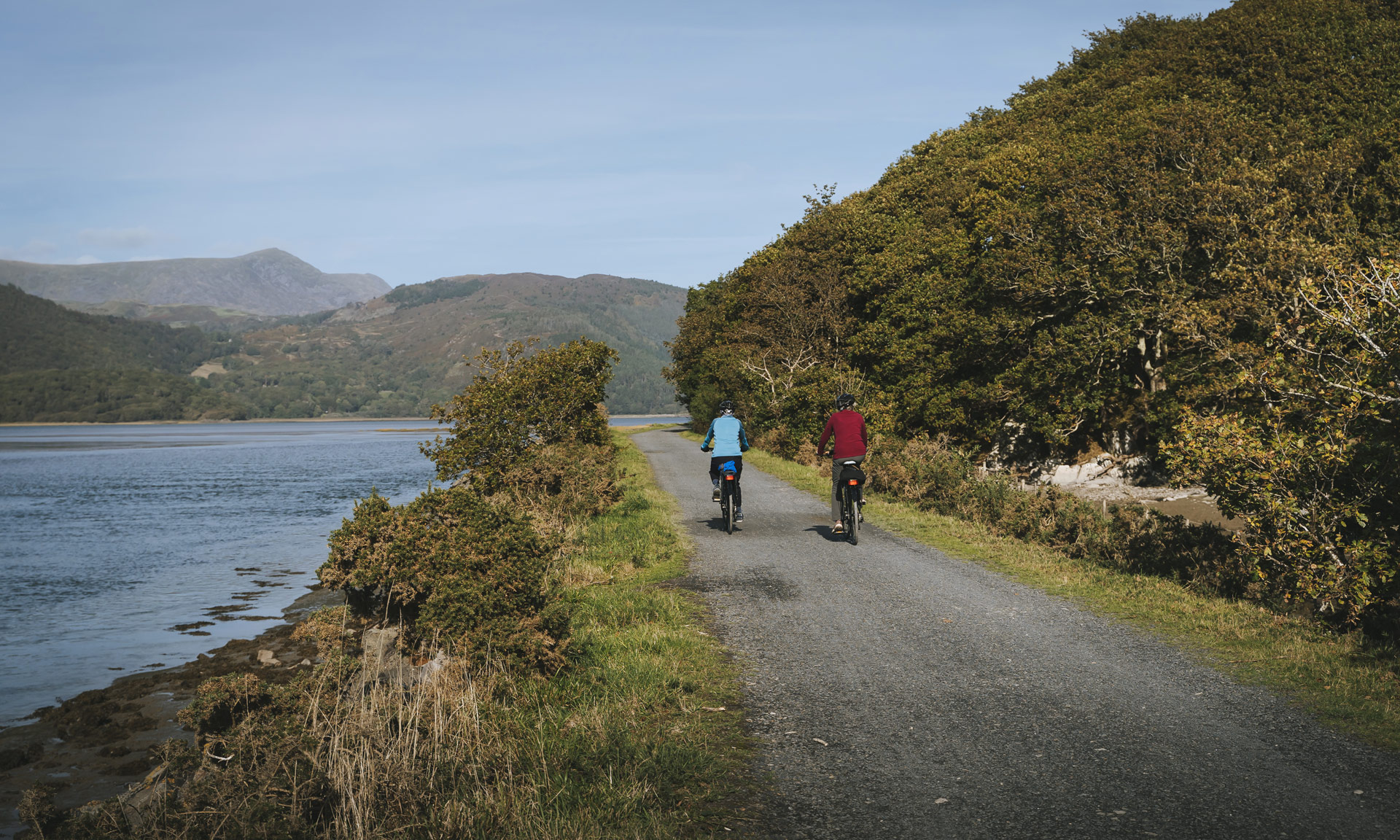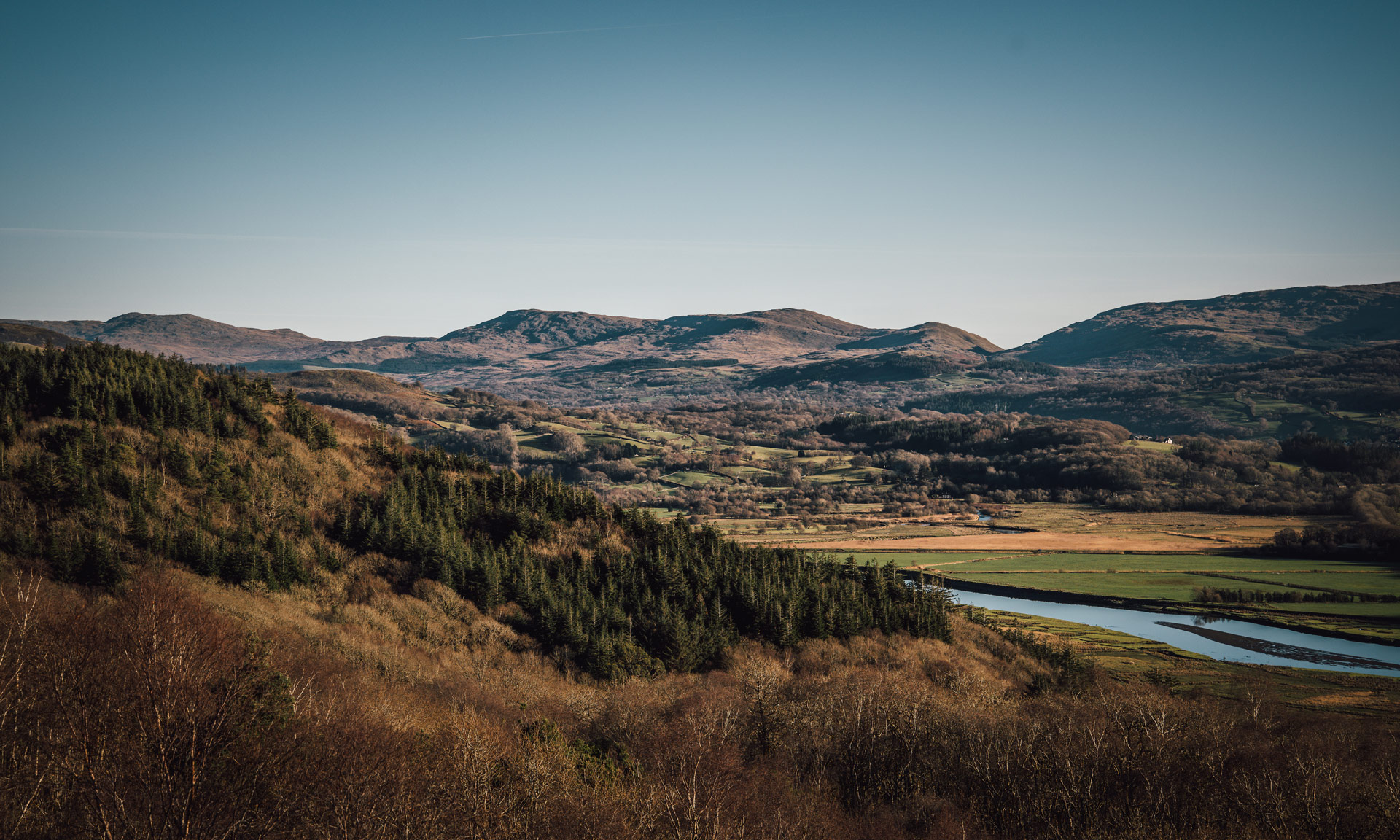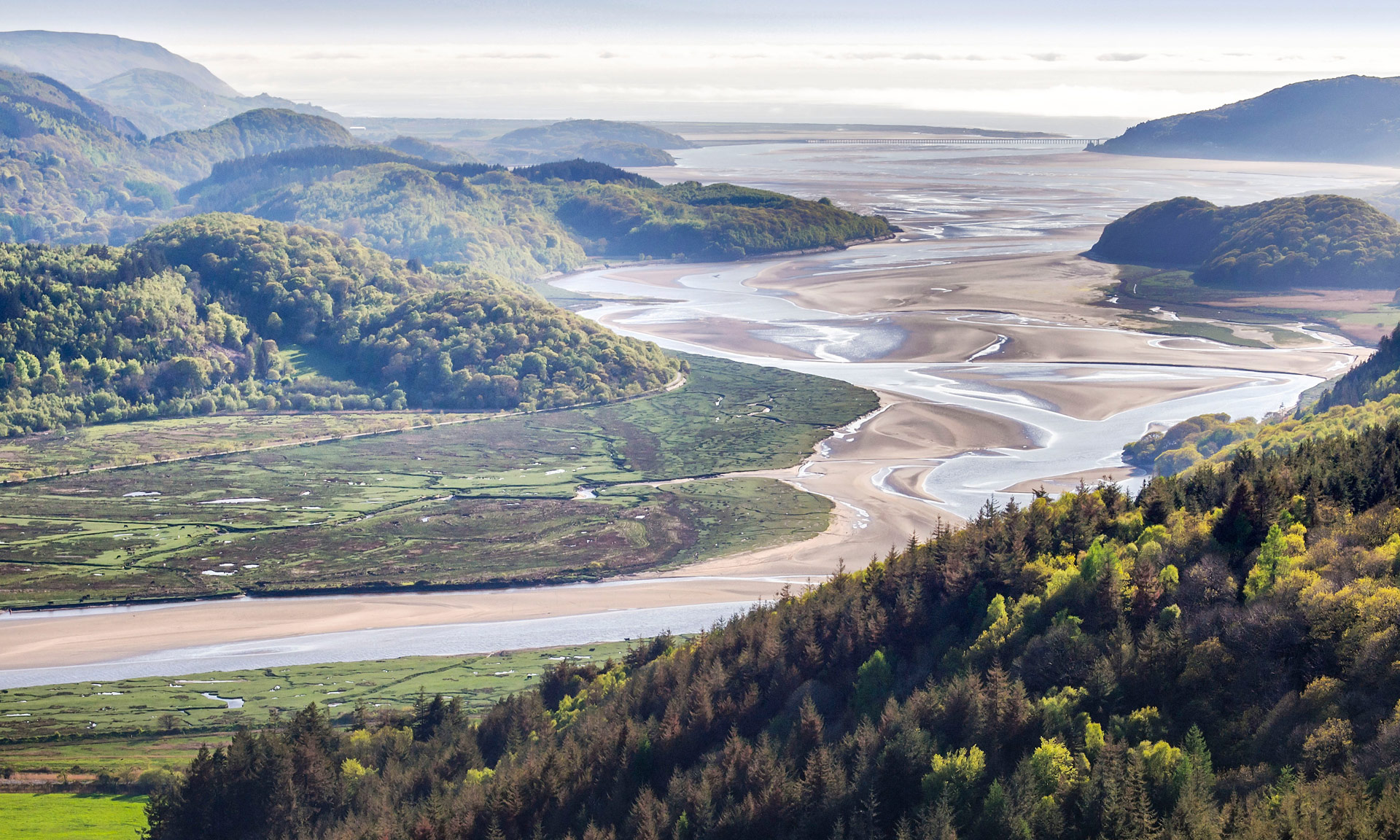One of the many rich and varied walks situated along the Mawddach Estuary
As its name suggests, the defining feature of the Panorama Walk is its spectacular viewpoints over the Mawddach Estuary, the Cader Idris mountain range and Cardigan Bay. Beginning from Barmouth, this 4-mile strenuous route will lead you through varied woodland, along winding country roads and to open expanses overlooking the surrounding landscape.
Why this path?
The Panorama Walk is one of many trails that are available along the Mawddach Estuary. It is a strenuous route and therefore not suitable for novice walkers. For a more accessible option, the Mawddach Trail on the estuary’s southern shore is the perfect alternative.
The route features steep climbs and can be very wet underfoot. Wear appropriate footwear in wet weather conditions.
© Crown copyright and database rights OS AC0000825604. Use of this data is subject to terms and conditions.
The National Park Authority has categorised this route as a moderate route. It is suitable for people with some countryside walking experience and a reasonable level of fitness. The terrain will include some steep or unsurfaced paths in the open countryside. Walking boots and waterproof layers are essential.
Start/Finish
Eryri National Park Car Park near Barmouth (SH 625 166)
Relevant OS Map
OS Explorer OL23 (Cader Idris and Llyn Tegid)
Always park in designated parking places and never in areas where you block entrances to fields or residential areas.
Eryri National Park Car Park near Barmouth
Owned by Eryri’s National Park Authority
Stay safe and help protect the countryside by reading the information about safety and following the Countryside Code.
The Mawddach estuary
The vast and sandy Mawddach estuary is one of the National Park’s most remarkable areas.
The area is designated a Site of Special Scientific Interest and a Special Area of Conservation due to its salt marsh and lowland peat habitats.
Nearby Arthog bog is home to an RSPB nature reserve full of incredible wildlife such as rare flowers, grass snakes, butterflies and all manner of birds.
The area was also the centre point to some of Eryri’s rich industrial past. On the estuary’s northern shore, the historic Clogau gold mine sits high above the village of Bontddu. Mining for gold was a popular activity in this area. Gold panning also took place in the Mawddach river itself.
During the 18th and 19th centuries, the Mawddach was home to a busy shipbuilding industry. A total of 318 vessels were built along the Mawddach between 1750 and 1865
Barmouth Bridge
Down towards the end of the Mawddach estuary stands Barmouth Bridge, crossing between the northern and southern shores of the Mawddach. The bridge is a Grade II* listed single-track wooden railway viaduct stretching 820 meters between Morfa Mawddach and Barmouth stations. It is the longest timber viaduct in Wales and is synonymous with views of the estuary.
Panorama Gardens
Barmouth was a popular visitor attraction during the Victorian era. As you walk along the path to the village of Cutiau, you will pass an old Victorian garden which was popular in the early 1900s. The gardens boasted a tea-room and fantastic view of the surrounding area.
